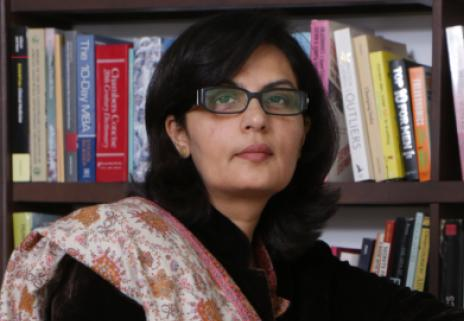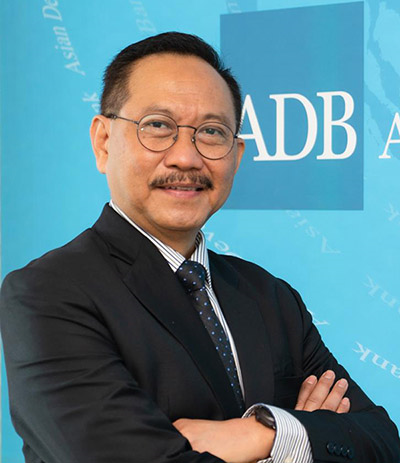KPL
(KPL) Even before the pandemic, women in Asia and the Pacific were already at clear disadvantage in the labour market. Their jobs were often low-skilled and low-paid. They worked the longest hours in the world due to the combination of both paid and unpaid work.
By Sania Nishtar and Bambang Susantono

Dr. Sania Nishtar
(KPL) Even before the pandemic, women in Asia and the Pacific were already at clear disadvantage in the labour market. Their jobs were often low-skilled and low-paid. They worked the longest hours in the world due to the combination of both paid and unpaid work.
The pandemic has made their predicament even more dire. Those low-skilled jobs were some of those that disappeared during lockdowns. The burden of largely invisible unpaid care work, already four times heavier for women than men, escalated as families were confined to their homes.
The region cannot truly rebuild better from the pandemic without making women central to the recovery. In fact, a women-focused recovery makes sound economic sense. In Mongolia, ADB estimates that eliminating gender inequalities in the labour market could add 16.1% to gross domestic product over the next 30 years. This echoes the findings of similar studies.
As the region rebuilds, we have a chance to disrupt business-as-usual approaches to empower women. Three key principles can underpin national recovery strategies, and transform how women live and work.

Dr. Bambang Susantono
The first principle is to recognize and measure the nature and context of gender inequality that the pandemic has exacerbated. The economy is not a level playing field. Interventions in the public and private sectors will not have the same impacts on women as they do on men. Sex-disaggregated data and gender analysis in key policy areas are not used enough to inform public interventions and monitor and assess progress. These data gaps “hide” gender differentials, leading to gender-blind responses.
Systematic sex-disaggregated data collection makes gender inequality in the world of work (and beyond) visible and, importantly, actionable.
Second, setting and monitoring gender targets across government and corporate recovery programmes promotes equitable access to critical resources. This was a valuable lesson learned in 2020, when ADB and the Government of Pakistan set targets to ensure women could directly benefit from cash assistance to daily workers or from entrepreneurship support funds.
This approach was applied across ADB’s support to its developing member countries in combating the effects of COVID-19. In Pakistan, women constituted 54% of the recipients of COVID-19 cash assistance distributed through the Ehsaas Emergency Cash program. Targets should be accompanied by proactive measures to reach out to women: women are often not aware of their entitlements or miss out because of bias in favour of men, and targets get missed as a result. Targets are also effective tools to help ensure commitments are allocated appropriate resources: they anchor rhetoric on gender equality in a concrete and transparent framework.
Third, a women-focused recovery requires a whole-of-society response. Governments of course can play a key role in enabling and encouraging the private sector to act for gender equality through standard-setting regulations, stamping out discriminatory laws, as well as innovating through fiscal subsidies in favour of childcare. This must be a whole-of-government approach, with close coordination between sector ministries and ministries of women and gender. However, responsibility for achieving gender equality during the recovery from COVID-19 should not fall solely on governments. Partnerships across a spectrum of actors can break down silos and lead to transformative change.
For example, the private sector can play a leading role by increasing gender-lens investments and by spearheading innovations and technologies that help bridge the gender divide. Civil society organisations and development partners also play critical roles in direct support to women and girls on the ground, and are often at the frontline for mitigating negative impacts on gender equality. Partnerships and coalitions to rebuild better for women and girls are a win-win, as economies also prosper when half the population enjoys full rights and equal access to opportunities.
At this year’s Annual Meeting of ADB’s Board of Governors webinar, ADB and its key partners deepened their shared commitment to promoting gender equality and a women-focused recovery. We heard of new initiatives, such as blended finance for women-owned businesses, including gender bonds; using new apps to track and support women’s businesses in supply chain,that are already creating momentum for better conditions and more opportunities for women in the region.
These inspiring narratives reveal multiple pathways for a pandemic recovery to foster greater inclusion, resilience and equality for women and girls. Development partners (including civil society organisations), governments, and the private sector must collaborate to put women at the center of the region’s recovery. Only then will women and girls be able to change their lives, and in doing so, make an even greater contribution to the region’s prosperity.
Dr. Sania Nishtar is the Special Assistant of the Prime Minister and the Federal Minister for Poverty Alleviation and Social Safety in Pakistan.
Dr. Bambang Susantono is the Vice-President for Knowledge Management and Sustainable Development of the Asian Development Bank.
KPL